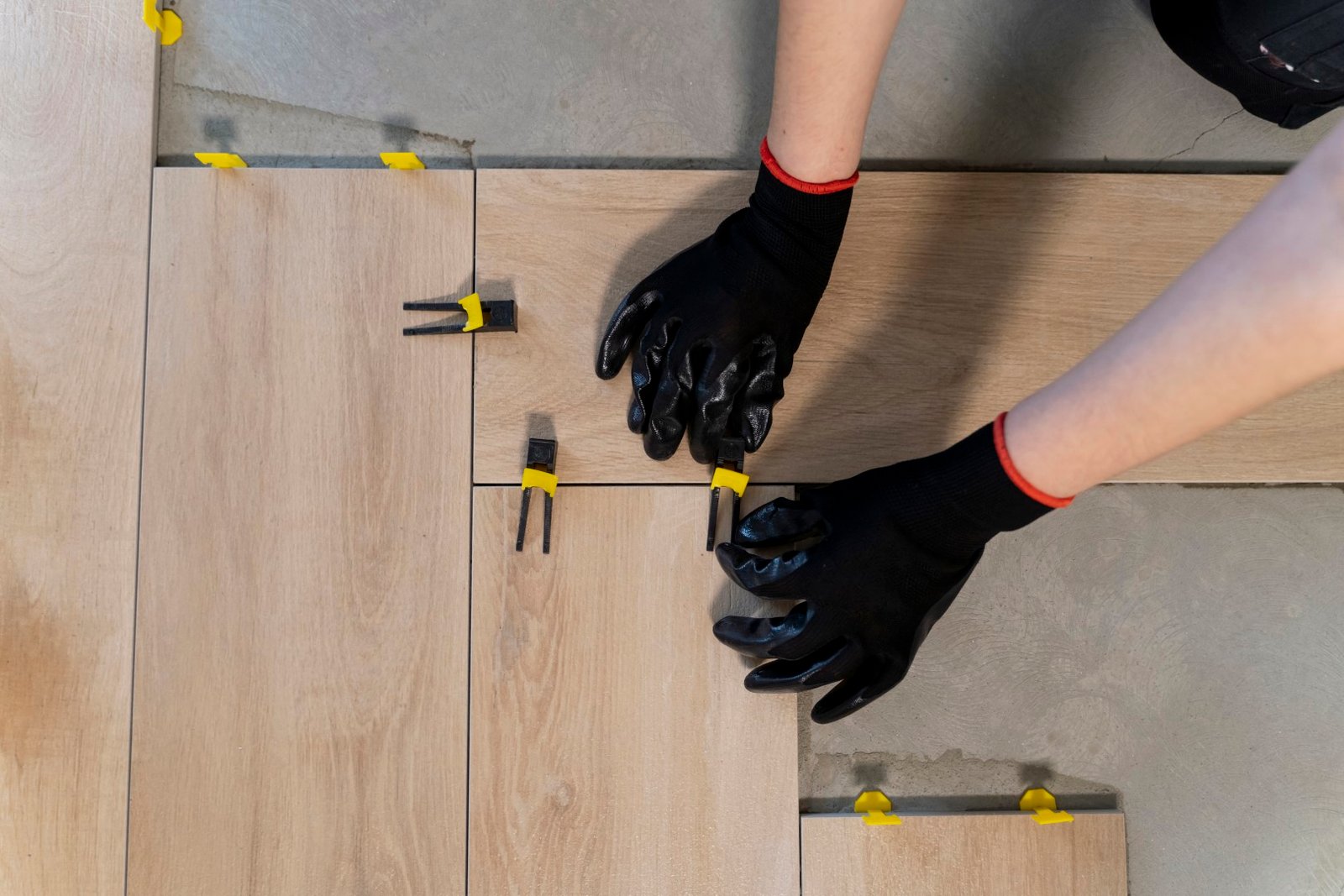SPC Vinyl Flooring Pros and Cons – Is It the Right Choice for Your Home Project?
In the world of modern flooring, SPC Vinyl Flooring has quickly become a favorite among homeowners, interior designers, and even commercial project managers. With its sleek wood-like finish, 100% waterproof capabilities, and high resistance to wear and tear, it's easy to see why SPC (Stone Plastic Composite) flooring is creating such a buzz in the market.
But is it the right choice for your home or commercial space? Let’s explore the pros and cons of SPC flooring, so you can make a well-informed decision.

What is SPC Vinyl Flooring?
SPC flooring stands for Stone Plastic Composite flooring. This high-performance rigid core flooring is made by blending limestone powder, stabilizers, plasticizers, and vinyl resin to create one of the most durable surfaces on the market.
Its core structure usually contains:
- 50–70% limestone powder (calcium carbonate) – giving strength and rigidity
- 20–30% stabilizers and PVC – enhancing flexibility and waterproofing
- 5–10% plasticizers and additives – increasing elasticity, fire resistance, and impact resistance
- Wear layer (0.3mm to 0.7mm) – for scratch resistance and stain protection
- Printed vinyl layer – offering highly realistic wood, stone, or tile designs
- IXPE Foam underlayment (optional) – providing added comfort, noise reduction, and insulation
Above the core layer, there's a:
This layered construction makes SPC vinyl flooring a high-quality floor covering that’s both stylish and built to last.
Why is SPC Flooring So Popular?
In recent years, SPC flooring has surged in popularity due to its versatility and performance. Whether it's a cozy apartment, a luxury villa, or a high-traffic office, SPC can handle it all. Designers love its clean appearance, commercial developers appreciate its durability, and homeowners enjoy the low maintenance it requires.
Pros of SPC Vinyl Flooring

1. 100% Waterproof Flooring
One of the biggest advantages is that SPC flooring is waterproof. Whether you install it in the kitchen, bathroom, or basement, you don’t need to worry about water damage. The rigid core does not swell or warp, even when exposed to moisture for long periods.
2. Realistic Wood & Stone Look
Thanks to advanced printing technology, SPC offers incredibly realistic wood and stone finishes—without the cost or upkeep. It's a smart way to get the beauty of natural materials with the convenience of vinyl.
3. Quick & Easy Installation
With its Click-N-Lock interlocking system, SPC flooring installation is DIY-friendly. You don’t need glue or nails—just snap the planks together over the subfloor, saving time and labor costs.
4. Excellent Stability & Durability
The stone composite core ensures excellent dimensional stability, even in environments with fluctuating temperatures or humidity. That makes SPC ideal for places with underfloor heating or sun-facing rooms
5. Comfort and Soundproofing
The optional IXPE foam backing adds a layer of cushioning underfoot, reducing foot fatigue and making the floor feel warmer and softer than traditional tiles. It also helps with noise reduction, which is perfect for upper floors or commercial settings.
6. Stain & Scratch Resistance
SPC flooring’s wear layer is engineered to resist scratches, scuffs, and stains. This makes it suitable for high-traffic areas, homes with pets, or busy families.
Cons of SPC Flooring

1. Higher Cost Than Ceramic Tiles
While SPC is more affordable than hardwood, it may still cost more than standard ceramic tiles. If you're on a tight budget, this could be a consideration, though its benefits often outweigh the difference.
2. Not Easily Repairable
Unlike hardwood, which can be sanded and refinished, SPC planks typically need to be replaced if damaged. However, since it uses an interlocking system, replacing a single plank is easier than with glued flooring.
3. Feels Warmer Than Real Wood
Some users notice that SPC feels slightly warmer or softer than solid hardwood flooring, especially in hot climates. While this is not necessarily a downside, it’s something to keep in mind if you're expecting a traditional hardwood feel.
When is SPC the Right Choice?
SPC is a flexible, multipurpose flooring solution for:
- Modern homes seek durable, stylish flooring
- Commercial spaces that demand high performance
- Moisture-prone areas like bathrooms, kitchens, and basements
- High-traffic zones such as hallways and office floors
If you value durability, easy maintenance, and waterproofing, and you're looking for something that bridges the gap between beauty and function, then SPC vinyl flooring might be exactly what you need.
Conclusion: Is SPC Flooring Worth It?
In summary, SPC flooring offers a compelling mix of aesthetics, comfort, and rugged performance. It’s 100% waterproof, scratch-resistant, and easy to install. While the upfront cost may be higher than basic ceramic tiles, the long-term benefits, especially in durability and maintenance, make it a smart investment.
Whether you're remodeling your home or working on a commercial project, SPC is a modern solution that balances form and function beautifully.
So, if you're looking for a high-quality floor covering that stands up to everyday life and looks fantastic doing it, SPC (Stone Plastic Composite) flooring is absolutely worth considering.

